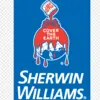12 Top Painter Questions

Ask These Questions Before You Choose a Painter
Do you have proof of insurance?
Every painter should carry General Liability insurance with not less than $1 million in coverage. This insurance protects the homeowner from damage done by the painter, e.g. 5 gallons of white latex is spilled on your new roof or a ladder crashes onto your convertible. Repair work? That falls under carpentry and requires a separate rider. Proper insurance is Business 101. Of course, if these accidents really didn’t happen nobody would need insurance.
Who will be doing the work?
All workers, whether employees or subcontractors, should be both informed and supervised. Trouble happens when companies don't take care of these critical items.
Informed means that painters clearly understand the Scope of Work. Supervised means the painters are accountable for delivering on company and customer expectations. Well-supervised projects meet expectations. And that means happy customers and on-time completions.
A well-run company will arrive when they say they will, work a full day and then return each day until the job is complete.
May I have a copy of your insurance certificate for my files?
“Trust, but verify” is still good policy. You don't want uninsured workers standing on ladders looking through your windows - or unplugging your office server. If the certificate doesn’t answer the above questions a call to the insurance agent should clear things up.
New homes or old?
Homes more than 30 years old have many layers of (lead) paint, aluminum storm windows to remove and replace, window putty, deeper soffits and very often more architectural detail. These homes require a slower, more methodical pace and different work processes. A paint crew that is used to the new construction “blow & go” pace will likely not be familiar with the attention and careful prep work that an older home requires.
"May I have a copy of your insurance certificate for my files?" Yes - trust.
But always verify.
Which brand of paint do you recommend?
Painters establish a relationship with a particular store for a variety of reasons – knowledgeable help, quality products or attractive pricing. If a painter is reluctant to use another product, it’s fair to ask why. Strong belief in a product based on experience is fine, but when a financial incentive trumps all else, the advice you get may not be in your best interest.
All of this assumes quality materials – if you’re being steered toward a low cost product, find another painter. When it comes to paint, you never get more than you pay for. Also, most professionals do not use paint from the Big Box chain stores for several reasons: product quality is one, but also lower quality, limited selection, poor service and availability.
What is a properly painted surface?

The Painting Contractors Assoc has established clear standards for its members, from accepted production rates to appropriate materials and application techniques. Objective standards make it easy for homeowner and painter to agree on what a properly painted surface is. Membership in trade organizations indicates a level of professional commitment.
Do you require any payment up front?
There’s no right answer here – just some things to be aware of. If your painter is a poor business owner, he may use your up-front payment to take care of last month’s bills and will then be in a big hurry to finish the job so he can pay his workers. You’ve just lost a good bit of leverage to ensure the agreed-upon quality work. A large up-front payment is often an indicator of an under-capitalized business. A reasonable approach is to make a partial payment after a couple of days. The painter has committed labor and equipment to the project and the homeowner sees that work is progressing so both parties have an interest in satisfactory completion.
Will you start on time every day? Will you finish on time?
A motivated and well-run group of painters will arrive when they say they will, work a full day and then return each day until the job is complete. Those crews that don’t will take longer and disrupt your life more than they should.
Some painters over-extend themselves and undertake too many jobs at once. Work progress slows or becomes intermittent as workers shuttle between jobs. This is a common problem avoided by painters whose business skills are as sharp as their painting skills.
The weather is another factor in job delays. With favorable weather, work moves right along. Unfavorable weather means everyone must be patient.
Will my property be protected?
A quality painting company will tarp everything, arrange for prized plants to be moved or staked off and make sure that cars are out of overspray range. This type of conscientious preparation is often overlooked because it is a hassle - it’s easier for a painter to tell his workers to “watch out for the plants” or just hope they’re not careless. Attention to detail at the start saves problems for everyone later.
Will I hear loud music, objectionable language or find cigarette butts in my garden?
Some painters assume that your home is, in fact, their work area. And then they act that way. Better to be clear with your expectations up front.
What is your source for new product information?
Paint manufacturers, specialty distributors and inventors come out with new products every year. Paint stores carry only a small number of new products, even those from their own manufacturers. Is the painter confident that the primer, caulk or tools he’s been using for 37 years are still the best for the job? Does he subscribe to trade magazines and read industry blogs?
What about lead paint and dust?
This question will tell you if the painter is informed about the lead issue or if he will downplay it to get the job. Lead paint is a reality that is best viewed from an informed perspective - and both the painter and the homeowner should be informed. The EPA and the City of Kansas City have good information on their websites about dealing with lead paint.
It’s best to assume that any paint applied to your house before 1978 contains lead. Any sanding should be collected in a HEPA (High Efficiency Particulate Air) filtered vacuum. Sanding without HEPA filtration and appropriate breathing protection is a violation of EPA guidelines and OSHA regulations.
*PROPERLY PAINTED SURFACE
A surface uniform in appearance, color, texture, hiding and sheen. It is also free of foreign material, lumps, skins, runs, sags, holidays, misses, or insufficient coverage. It is also a surface free of drips, spatters, spills or overspray caused by the Painting Contractor’s workforce. [PCA, P1-04]


